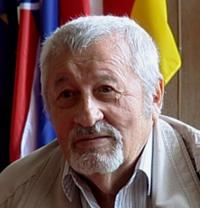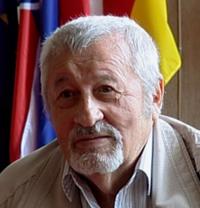As a thirteen-year-old boy I stopped to think about the absurdity of this war. I saw the corpse of my neighbour; I saw the dead bodies of my classmates. It was the era in which a human life was absolutely worthless

Download image
Jozef Cerina was born on October 4, 1931, in the village of Opatová near Lučenec. He comes from the family of a workman and has no siblings. His mother was a textile workwoman and father was a driver. Jozef Cerina spent his pre-school years in protectory located in the centre of military area, so from his early childhood he was in touch with military units. In 1937 he started to study at the state public school in Opatová and he directly witnessed sequence of events that happened in 1938. At their school there was a civilian spotter and pupils were being prepared for possible bombing of the country. When mobilization was proclaimed in 1938, his father got a draft card, too, so it affected the whole family. When Jozef Cerina was attending school, the Munich Pact was signed and on the basis of its demobilization clause, his father returned home. He experienced the Vienna Award, after which his home village was annexed to Hungary. Thus he could take notice of relations between Slovaks and Hungarians living in this area. He was present there when Hungarian army took over the town and suddenly he became a citizen of Kingdom of Hungary. The Second World War affected also the town of Lučenec. His father had to take part in various military trainings and later he was forced to leave his family again. When Hungary got involved in the war, he had the first-hand experience of situation in the rear. In 1942 he started to attend municipal elementary school in Lučenec, where there was an infinite national and religious variety of students. He was a member of youth organization called Levente, which aimed to strengthen national consciousness and to prepare boys for military service. He knew a lot about the situation in Hungary and in Slovakia, too, and about the political structure of that period. When the air strikes appeared, he was only a boy, but he became aware of the absurdity of war and death tolls. However, he had never experienced discords between Slovaks and Hungarians in Opatová and Lučenec between the years 1938 and 1945. He even regards them as fabricated by political officials.

